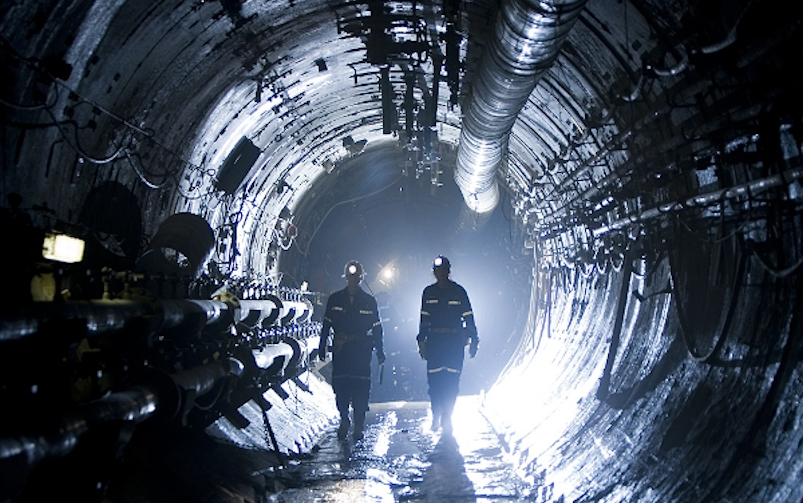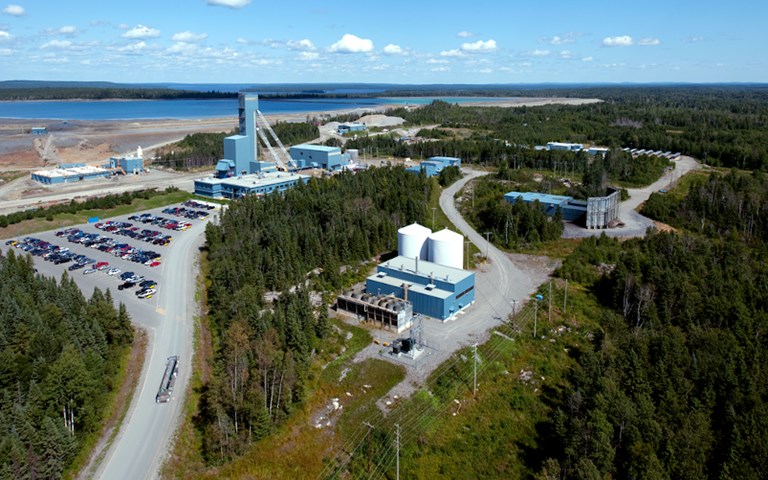Agnico Eagle has begun screening employees for the virus at its Nunavut and Quebec mines. Courtesy of Agnico Eagle.
Mining companies operating in Canada are taking measures to protect employees in light of the recent COVID-19 pandemic. As the novel coronavirus has spread to over 140 countries, companies such as Agnico Eagle Mines and Vale are using different strategies to protect their workers and operations as the situation unfolds.
According to Nunatsiaq News, Agnico Eagle Mines created a new senior management task force to work on response measures to the pandemic, and will be adopting more cleaning, medical care and isolation measures at its mine sites.
In addition, the company is implementing its existing pandemic plan in response to COVID-19. As part of the plan, which was developed following the SARS and H1N1 outbreaks, the company will begin screening employees for the virus at its Nunavut mines in Rankin Inlet and Baker Lake and its Quebec mines in Mirabel and Val d’Or.
How companies will accommodate workers it sends home for suspected symptoms of the virus, such as a cough or sore throat, remains uncertain.
The high risk of travelling associated with COVID-19 has led some companies operating at remote sites to suspend activities in order to protect employees. While there have been no reported cases of the virus at any remote mine locations, companies are acting to prevent its spread to regions where resources are limited.
Marathon Gold, for example, announced that it was closing the 44,000-metre exploration drilling program at its Valentine Gold project in Newfoundland for spring maintenance two weeks earlier than scheduled due to concerns about the pandemic. As the project is in a remote environment, the company stated that if there were a case of COVID-19 at the camp, it would be unable to sufficiently follow self-isolation and care protocols.
According to Marathon, a management team of two to three people will remain at the camp for maintenance. The spring maintenance period is scheduled to last one month, however, that may be subject to change as the pandemic progresses.
On Mar. 16, Vale similarly announced that it was placing its Voisey Bay operation on care and maintenance for four weeks as a precaution to protect the Nunatsiavut and Innu Indigenous communities in Labrador. According to Vale, the remote fly-in fly-out project has over 400 Indigenous workers, who are at greater risk from the COVID-19 pandemic in remote and vulnerable areas.
“We want to ensure our operations do not act as a catalyst to inadvertently introduce the virus in[to] these remote and vulnerable communities, where concern has been expressed about access to adequate health care services and overcrowding in homes,” said Kristie Cochrane, manager of corporate affairs and communications at Vale Newfoundland and Labrador.
The company has cancelled all non-essential global travel and has also asked that the majority of its company and third-party employees work remotely. However, working from home is not an option for all members of the mining industry, and companies will have to figure out accommodations for miners and other employees where working from home is not feasible.
Related: Protecting our people and supporting the communities that we live and work in are just some of the many values that form our ethics system
Previously planned events are moving online in order to lower social interactions that can spread the virus.
On Mar. 13, Teck Resources announced cancellations of meetings and events as a preventive measure for its employees, shareholders and others against the virus. Its annual shareholder meeting will be moved online and its annual investor and analyst days will be replaced with two conference calls and webcasts.
Teck stated that these changes were part of the company’s larger COVID-19 response plan, including reducing risks associated with larger gatherings and travel.
The spread of the COVID-19 has had an extreme effect on global markets, and mining companies have had to make changes to their operations as well.
Copper Mountain Mining revised its 2020 guidance and the mine plan for its flagship Copper Mountain mine project in southern British Columbia as a result of the pandemic’s impact on metal prices.
Copper production guidance in 2020 was decreased to 70 to 75 million pounds, down from a previous 86 to 96 million pounds. Predicted AISC for copper was also updated to the previous range of $1.55 to $1.70, up from $1.40 to $1.60. Revisions to the Copper Mountain mine plan include a 25 per cent decrease to its mine rate from 200,000 tonnes of copper to production of 120,000 to 160,000 tonnes of copper through the end of 2020.
According to Copper Mountain Mining, the revisions will maintain positive margins and cash flow in 2020 and 2021 and will not negatively affect the long-term plan of the mine. "Our operation is well positioned with mining phases that can be readily re-sequenced without negatively impacting the intermediate and long term,” Gil Clausen, president and CEO of Copper Mining said about the changes in a press release. “We believe this market uncertainty is short term and fully anticipate the copper price to recover."



